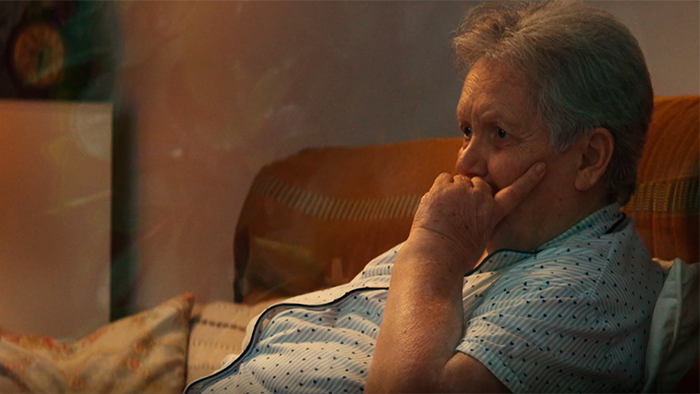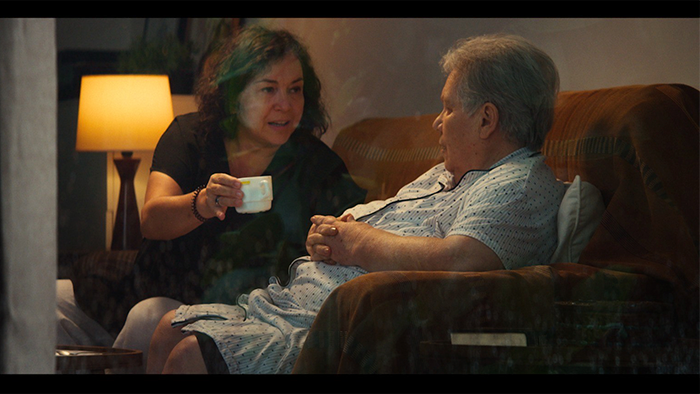17 Sep | 2025
The Pasqual Maragall foundation claims the role of caregivers and the importance of research on World Alzheimer's Day

World Alzheimer's Day. So that no one loses their identity.
In the context of World Alzheimer's Day, celebrated this Sunday, September 21, we highlight the essential and complicated work of those who care for people with Alzheimer's, as well as the importance of research as the only solution to the disease.
It is currently estimated that between 830,000 and 950,000 people suffer from Alzheimer's or other dementias in Spain. Families assume the care of those affected in 80% of cases, with an average of 70 hours of care per week. They also assume 86% of the associated costs, which are approximately €42,000 annually, reaching more than €77,000 in advanced stages of the disease. In professional care, the study "Caring better", which we developed with the support of IMSERSO, reveals that 67% of professional caregivers have not received specific training in Alzheimer's, despite the fact that almost 90% of professional caregivers would like to have received it. This reflects a disconnect between the extensive theoretical knowledge professionals possess and their confidence in the practical application of that knowledge in their daily work.
“Caregiving cannot continue to be an invisible burden borne alone. At the Foundation, we research Alzheimer's disease and support those who suffer its consequences today. Those affected and their caregivers find themselves lacking support and recognition, at risk of isolation and social exclusion. With life expectancy increasing, Alzheimer's is now a structural and silent pandemic that is unacceptable to the social and healthcare system if we don't find solutions.”, says Cristina Maragall, President of the Pasqual Maragall Foundation.
The path to a fair and equitable care system
The Foundation points out that the long-term care system still does not incorporate the perspective of Alzheimer's and dementia, despite their specific needs and the progression of symptoms. The assessment system continues to undervalue cognitive decline in the recognition of rights. People with Alzheimer's enter the system later and with less coverage.
The new Law on Personal Autonomy and Dependency Care (LAPAD), which will soon be debated in Congress, represents a step forward, but it is still necessary to place care for people with Alzheimer's and their caregivers among political priorities and to develop actions such as:
- Strengthen specialised care and training, incorporating an integrated portfolio of social and health services to extend the autonomy of affected individuals after diagnosis. Also, incorporating neuropsychology professionals into home care services and strengthening training for professionals in Alzheimer's and dementia.
- Supporting families facing overload and isolation with training and psychological support, as this is the most important concern for this group. It is crucial to provide them with resources through formal services, offering them tools to manage stress, anxiety, sadness, and guilt.
- Increase investment in the dependency system and take into account the initial stages of the disease. It's worth noting that Spain spends half the European average on long-term care and should at least reach 2% of GDP. On average, a person with Alzheimer's lives between four and eight years after diagnosis, but they can live up to 20 years, depending on other factors. During this time, those affected don't receive care until the disease is in its advanced stages.
Resources for research
Science is the only way to provide an effective response to Alzheimer's. In recent years, the first disease-modifying drugs have been approved, detection techniques with blood and digital biomarkers have improved, and new data confirm the importance of modifiable and environmental risk factors in prevention. These advances pose significant challenges and opportunities for research.
“Science has shown us throughout history that it is capable of enormous achievements if there is the will, talent, and necessary resources. From our research center, the Barcelonaβeta Brain Research Center, we have contributed to making these improvements and advances a reality today, thanks to the contributions of more than 100,000 members, donors, and patrons of the Foundation. On such a special day, we emphasise the need to continue allocating resources to research to achieve a future without Alzheimer's”, states Dr. Arcadi Navarro, director of the Pasqual Maragall Foundation and the Barcelonaβeta Brain Research Center.
World Alzheimer's Day: caring for Alzheimer's
We launched a audiovisual piece that places at the centre those who live with the reality of Alzheimer’s first-hand: carers and their affected family members, whose real voices and stories are shared in this video. Through this, we stand up for their rights and underline the ongoing need for research—so that in the future, no one has to lose their identity to Alzheimer’s disease.










